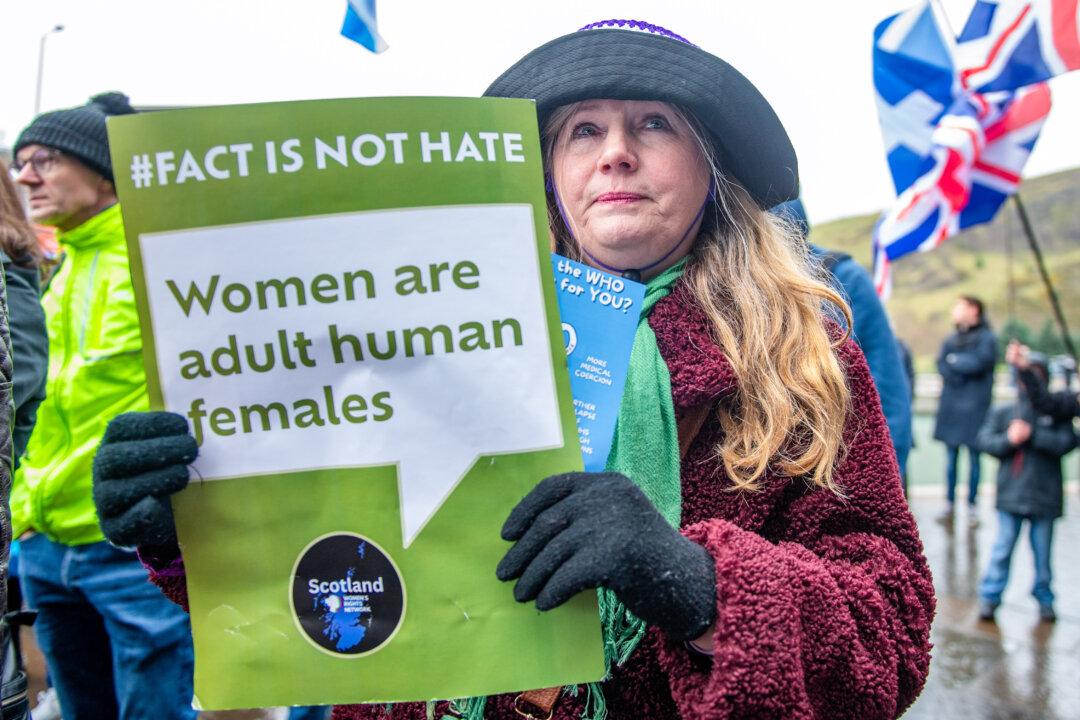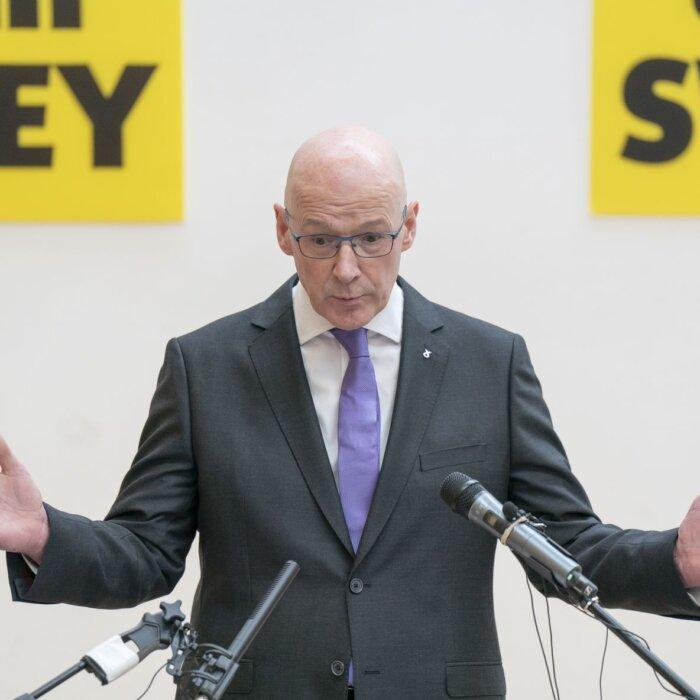A judge has found in favour of a woman who took a rape crisis centre to court after it initiated a “heresy hunt” against her because she believed it was important for victims to know the sex of workers there.
Roz Adams won her claim of constructive dismissal against Edinburgh Rape Crisis Centre (ERCC), which is funded by the Scottish Government, with the tribunal ruling that she had been harassed and discriminated against in an “egregious” manner after expressing so-called “gender critical” views.
Ian McFatridge, the employment judge, described the investigation undertaken by the centre into Ms. Adams’s opinions as “unfortunately a classic of its kind, somewhat reminiscent of the work of Franz Kafka,” the 20th century author whose works portray confusing, nightmarish events.
The tribunal heard that when Ms. Adams started working as a counselling and support worker in February 2021, she had initially been accepting of the centre’s “trans inclusive policy” because she believed that everyone who had suffered sexual assault was deserving of support and compassion.
She began to think more deeply about the issue after she went for a walk with Maggie Chapman, a Green MSP, who was then the centre’s chief operating officer.
“Once she started work she felt it became more and more apparent that there were issues regarding the way that gender issues were dealt with in the organisation … She described things around the issue as being ‘eggshelly.'”
Chief Executive Is Trans-Identified Man
The judgment identified Mridul Wadhwa, a trans-identified man who is the ERCC chief executive, as a key figure in an internal investigation that “should not have been launched in the first place.”The judge said: “It is clear that [Mr. Wadhwa] was involved in the process since [he] was the one who selected and contacted who would deal with the various stages of the disciplinary and grievance process.”
During the hearing, it was revealed that Mr. Wadhwa had told a university event that the “best way” to get staff to support policies around transgender rights was to “fire them.”
The judgment found that Mr. Wadhwa was “the invisible hand behind everything that had taken place.”
It added that it was “nonsense” to suggest any emails sent by Ms. Adams were “transphobic” and it was “absolutely clear” that a staff member changing their name to one that sounded male was “going to cause difficulties” in a rape crisis centre.
When Ms. Adams queried the sex of the “non-binary” counsellor, the management wrote a response clarifying that the centre did not employ men, but advised against divulging any further details owing to staff privacy.
Ms. Adams responded to this letter in June 2022 saying that the issue appeared to be a “minefield.”
The following month, she was invited to a meeting regarding her “potentially transphobic” views, which led to the launch of the investigation against her.
The tribunal ruling found that Ms Adams’s view was that everyone using the centre should have a choice over who they receive support from on the basis of sex, that sex is binary, and “everyone is either male or female at that level.”
It added: “Her belief was that whilst in most circumstances the distinction between biological sex and gender identity did not matter, that in a service dealing with sexual violence the respondent should be honest and clear when asked to give a clear and unambiguous answer in order to provide that service users give informed consent.”

Messages of Concern Labelled ‘Hate Emails’
Ms. Adams told the tribunal she became aware that people who wrote to the centre expressing concern on the subject were “classed as bigots” and emails from them were kept in a folder labelled “hate emails.”Judge McFatridge said the investigation against her was “clearly motivated by a strong belief among senior management and some of the claimant’s colleagues that the claimant’s views were inherently hateful.”
After her constructive dismissal from ERCC, Ms. Adams joined Beira’s Place, a centre funded by author JK Rowling, which offers a “sexual violence support service for women run by women.”
Rape Crisis Scotland said in a statement that all its member centres receiving government funding had to follow UK-wide standards of conduct.
“We have been concerned by some of the evidence arising from the tribunal suggesting that some practices at ERCC may have fallen short of these standards. An independent review into the practices and procedures [there] has been commissioned.
“We want to reassure survivors that their needs will be listened to and respected when they come to a Rape Crisis Centre for support, or for advocacy services.
‘Saddened’ By Ruling
In a statement, ERCC’s Board of Directors said the organisation is “saddened” by the ruling but added that they will “now take time to reflect on the written judgment.”The statement added, “We strive to provide a safe accessible and inclusive service and are committed to improving continuously.
“We are fully supportive of Rape Crisis Scotland’s commissioning of an independent review of ERCC practice. This will help ensure our practices and procedures meet the highest standards as set out in the Rape Crisis National Service Standards, and that survivors receive the exceptional quality of support they deserve.”
In response to the ERCC, Ms. Rowling said on social media platform X: “Not a word of contrition or accountability. No mention of the woman put through three years of severe stress and unwarranted investigation. No mention of rape survivors who self-excluded from their service. For whom are they ’saddened' - the persecutors?”
Ms. Rowing said of Ms. Adams, who has yet to be awarded damages, “Aside from being a highly qualified support worker, Roz is a person of bravery, integrity and compassion.”







